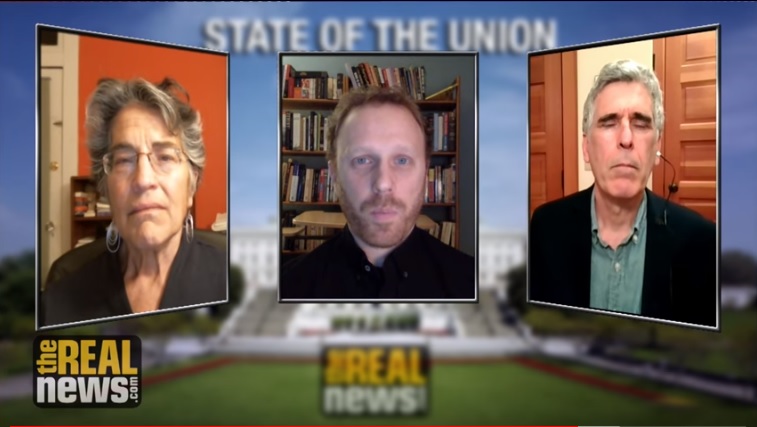Donald Trump’s first State of the Union address, IPS Middle East expert Phyllis Bennis told the Real News Network after the speech, was “a campaign-style speech” designed to appease Trump’s right-wing base.
While the president mostly avoided foreign policy, she noted, the views he did express were “extremist positions that are guaranteed to be popular with his base.” For example, Trump advocated “keeping Guantanamo Prison open and sending more terrorists there,” ridiculed the Iran nuclear deal as “the worst deal ever,” and made “generalized threats” against Iran and North Korea.
These comments were hawkish but “lacking specifics.” Instead, Bennis concluded, Trump’s position foreign policy is based on “raw” and “unmatched” power.
Bennis also commented on Trump’s calls to share funding only with countries that support U.S. policy at the United Nations. “It takes away any notion of international responsibility for poverty,” and for other significant global issues, she argued. It’s that kind of “overt disdain for the rest of the world that was so different with this speech” from past State of the Union addresses by other presidents.
Trump went on to praise the U.S. military’s strength, but Bennis noted that he failed to discuss the costs of its so-called achievements. Most notably, dealing with ISIS.
“It is true that, militarily, the ability of ISIS to control territory and control populations” has been “largely defeated,” Bennis said. But Trump’s indifference to the “thousands of civilians” killed by U.S. bombing there is indicative of the Trump administration’s disregard for “people in other countries, people of color in this country, immigrants and refugees from all countries, [and] Muslims from all countries.”
The speech, ultimately, was an expression of that racism “in very raw form.”
